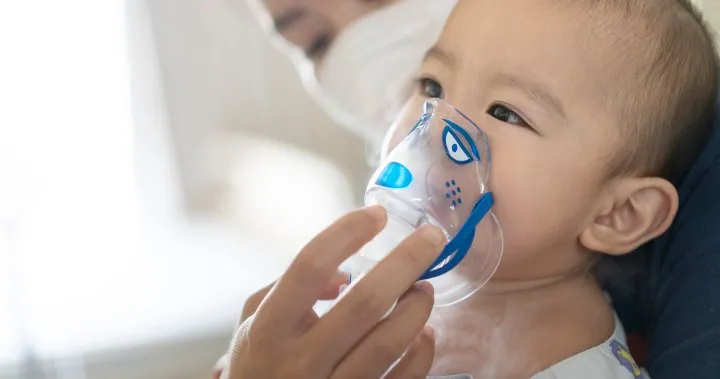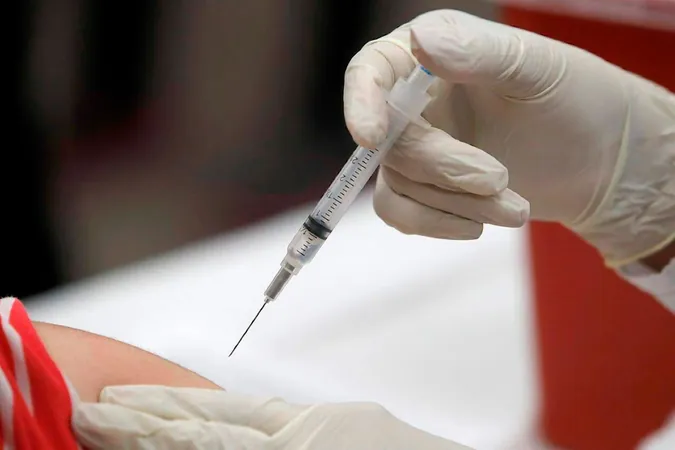
RSV Season Alert: How Canada is Protecting Children and What You Need to Know!
2024-12-12
Author: Olivia
RSV Season Overview
As Canada enters the peak of its respiratory illness season, cases of respiratory syncytial virus (RSV) are surging, particularly impacting infants. However, hope arrives in the form of a new antibody, nirsevimab, currently approved for use in several provinces and aiming to provide much-needed protection for the youngest and most vulnerable.
Recent Trends in RSV Cases
The recent data from Health Canada indicates a worrying trend: during the week of November 24 to November 30, RSV cases are notably increasing, with infants under one year old accounting for the largest share of these infections. RSV, while often mild in older children and adults, can escalate into severe complications like bronchiolitis and pneumonia for infants, necessitating hospital care and, in extreme cases, could even lead to fatalities.
Expert Insights on Infant Vulnerability
Dr. Darine El-Chaar, a maternal-fetal medicine specialist at Ottawa Hospital, explains the critical vulnerability of infants. "Newborns have an immunity gap and are at an increased risk for severe illness, particularly from RSV," she stated. This pressing concern has led to heightened awareness among parents, especially following the alarming surge in infections witnessed two years ago after COVID-19 lockdowns left many children exposed and susceptible.
Hospitalization Rates and Concerns
From the 2021 to 2022 RSV season, nearly half (49.8 percent) of the hospitalizations due to the virus were for infants under six months old. Despite a somewhat milder season last year, RSV remains a serious threat.
Introduction of Nirsevimab
Fortunately, nirsevimab offers a promising solution. Clinically approved by Health Canada in April 2023, it is a long-acting monoclonal antibody that requires just a single dose to protect infants up to 24 months old. Dr. El-Chaar notes that nirsevimab, which operates by blocking the virus from entering cells, demonstrates significantly more neutralizing activity—50 times more—than the previously used treatment, palivizumab. While palivizumab required monthly doses, nirsevimab provides immunity for up to 10 months, a game-changer during RSV season.
Vaccine Development: Abrysvo
In a further breakthrough, the vaccine Abrysvo was approved in December 2023 for pregnant individuals in their third trimester, potentially transferring protective antibodies to newborns, offering an additional layer of defense against RSV. "We're injecting mothers to ensure their babies are born with antibody protection that can last for about six months," explained Dr. El-Chaar.
Access Challenges Across Provinces
Despite these advances, the accessibility of nirsevimab is inconsistent across Canada. Provinces like Quebec and Ontario have already rolled out comprehensive programs to provide this new treatment to infants, while others, including British Columbia and Manitoba, are still limited to palivizumab for high-risk patients. Alberta faces supply challenges in acquiring nirsevimab, while Saskatchewan has announced that it will not be available at all this season.
Advocacy for Universal Prevention Programs
Importantly, the National Advisory Committee on Immunization (NACI) is advocating for the establishment of a universal RSV prevention program for all infants, starting with high-risk groups. They emphasize that program implementation will depend on various factors, including cost-effectiveness and healthcare access across provinces.
Looking Ahead: Expert Optimism
As the RSV season continues, experts like Dr. El-Chaar are optimistic that these new treatment options will lead to a significant decline in cases. "With good uptake of these products, we anticipate a drop in RSV infection rates. We won't see the results immediately, but we're hopeful for positive outcomes in the coming months," she added.
Parental Guidance and Awareness
As parents navigate this RSV season, understanding the risks and available protections—a combination of well-timed vaccinations, preventive treatments, and symptom awareness—could be the key to keeping their children safe amidst this ongoing health challenge.









 Brasil (PT)
Brasil (PT)
 Canada (EN)
Canada (EN)
 Chile (ES)
Chile (ES)
 España (ES)
España (ES)
 France (FR)
France (FR)
 Hong Kong (EN)
Hong Kong (EN)
 Italia (IT)
Italia (IT)
 日本 (JA)
日本 (JA)
 Magyarország (HU)
Magyarország (HU)
 Norge (NO)
Norge (NO)
 Polska (PL)
Polska (PL)
 Schweiz (DE)
Schweiz (DE)
 Singapore (EN)
Singapore (EN)
 Sverige (SV)
Sverige (SV)
 Suomi (FI)
Suomi (FI)
 Türkiye (TR)
Türkiye (TR)